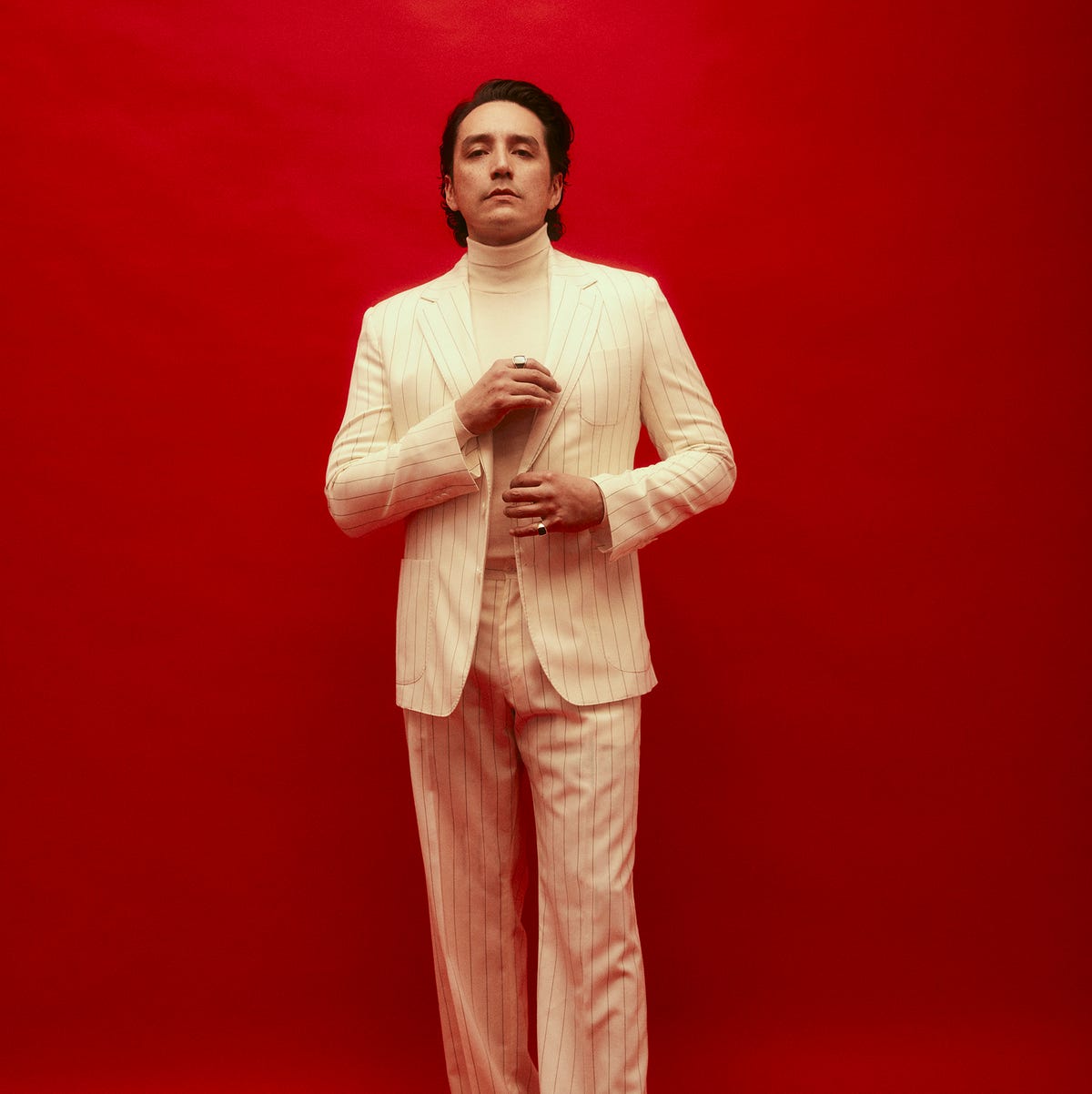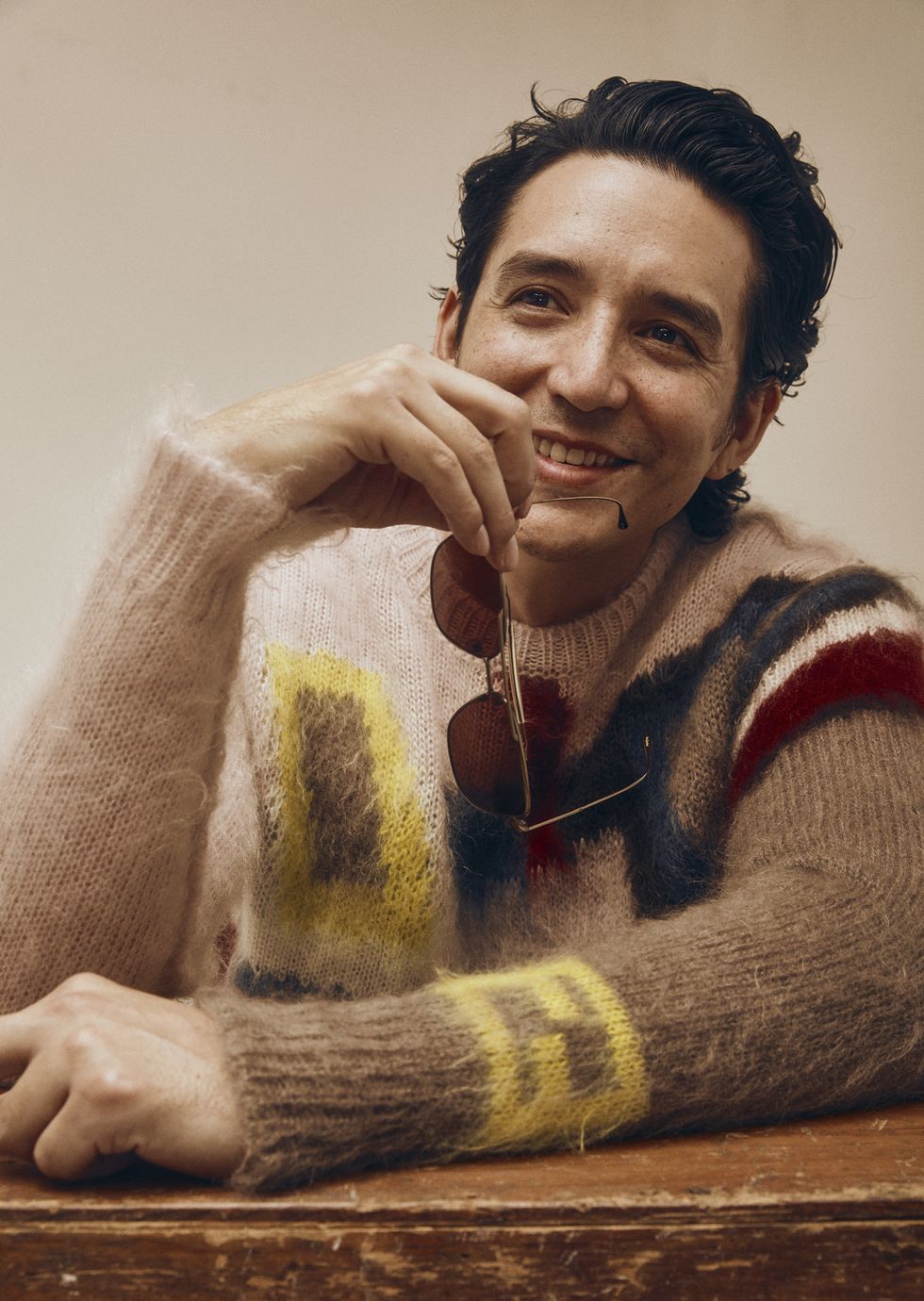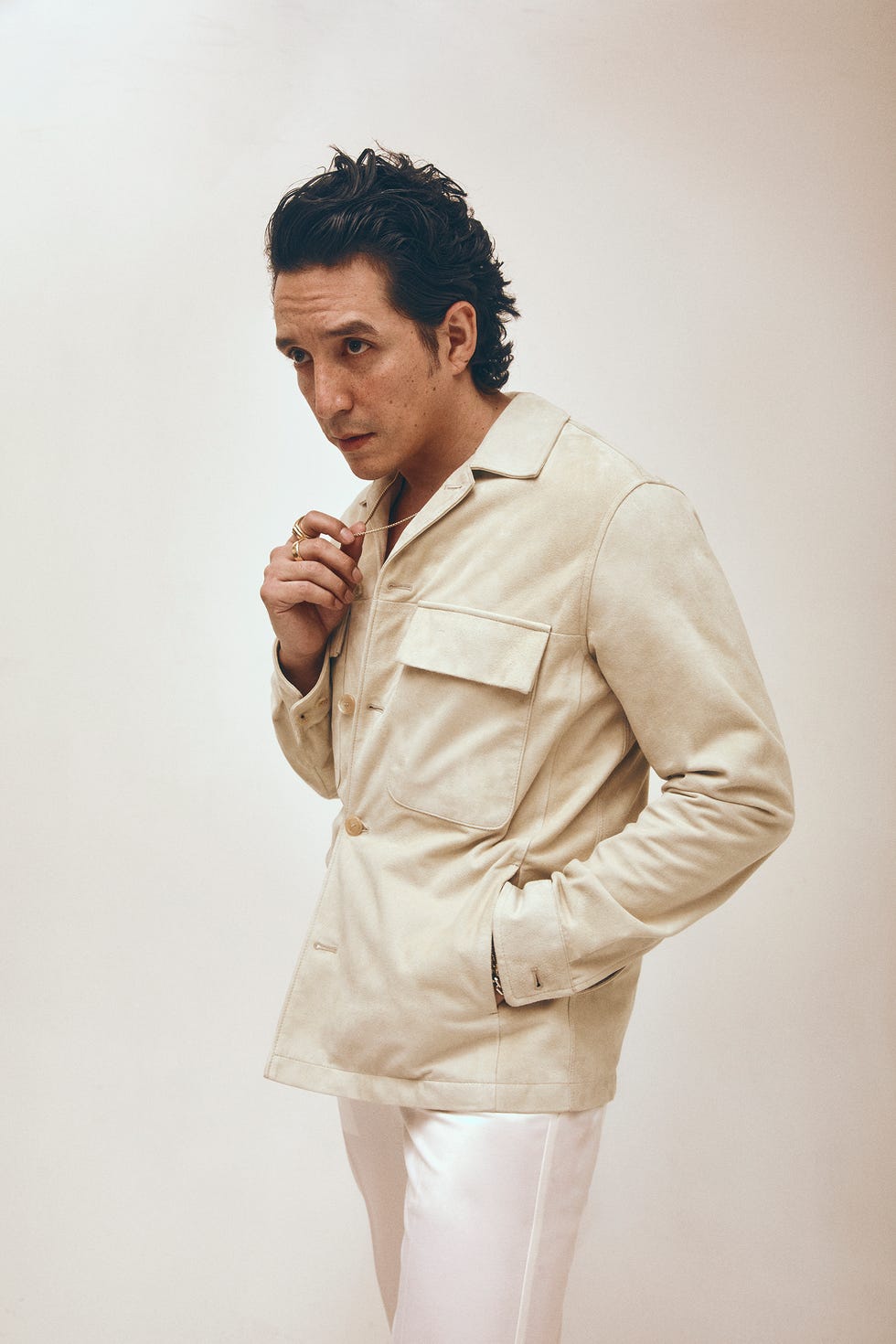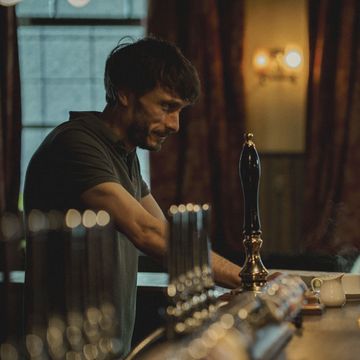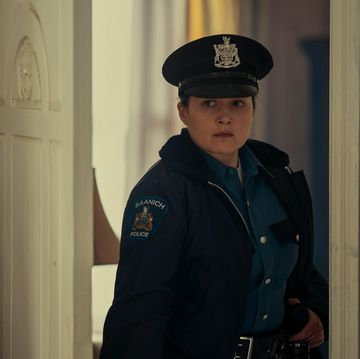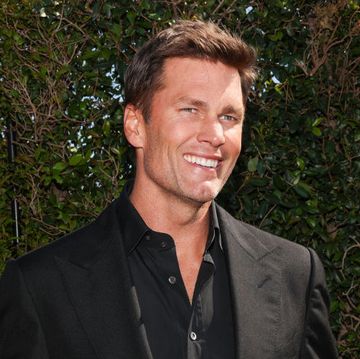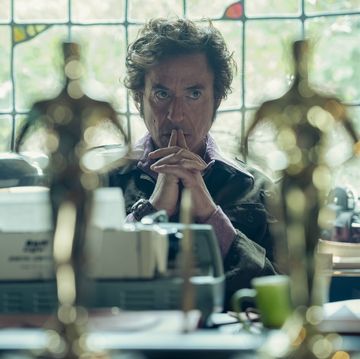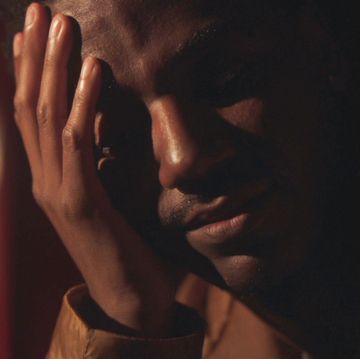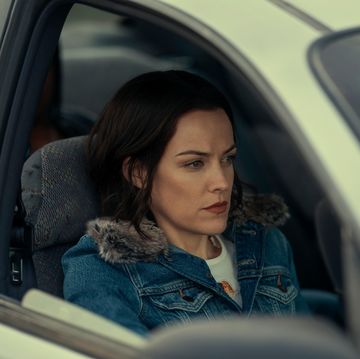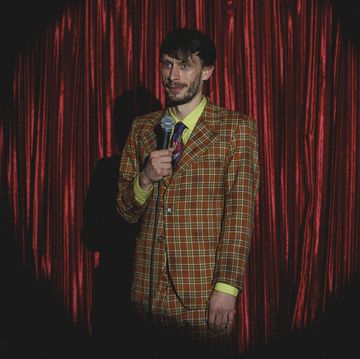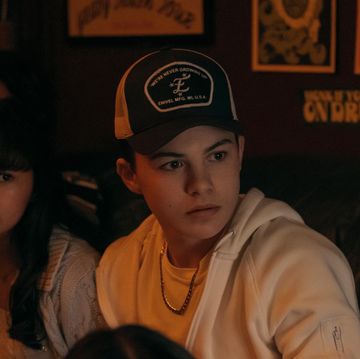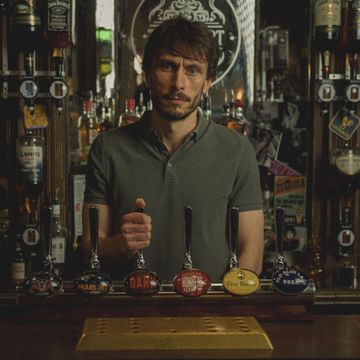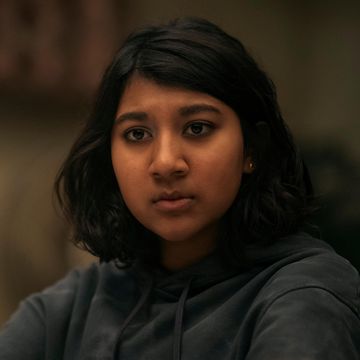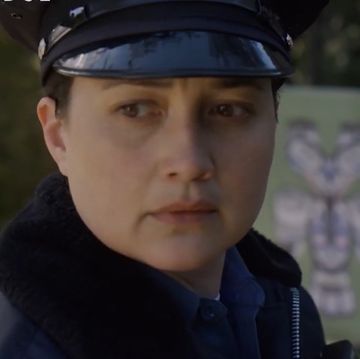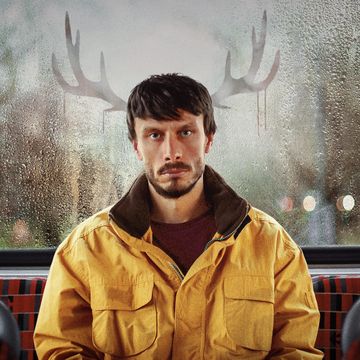This story contains spoilers for The Last of Us Episode Six.
There's this thing actors do when they really give a shit about a character. Gabriel Luna, who plays Tommy Miller in The Last of Us, does this thing—the thing that shows he really gives a shit. We're catching up couple of weeks before Episode Six airs when Luna starts speaking about the on-screen action in the first person. He's not, suddenly, Gabriel Luna, 40-year-old actor. He's Tommy Miller, brother of Pedro Pascal's Joel and an ex-Firefly who has improbably found a full life in the apocalypse.
"All he's asking me in that moment is to do him this favor," says Tommy-Gabriel of Joel's big ask in Sunday night's installment. "I explain that I would have to choose my own family at this point and he has a very adverse response to that. I respond just because his life ended, it doesn't mean mine has to. It's not that I don't love our family and I didn't love [Joel's daughter] Sarah. I have to tread forward. And Joel's not really prepared for that quite yet."
Maybe it's because Luna gives such a damn that he often takes on roles that have pre-existing rabid fanbases, swaths of people who also happen to care a whole lot. (Sometimes too much, which Luna also has something to say about.) In Marvel's Agents of S.H.I.E.L.D., he played Robbie Reyes's Ghost Rider with a level of badassery—sorry, Nic Cage—we'd never seen before. In 2019's Terminator: Dark Fate, he was the freakin' Terminator. Now there's Tommy, who Luna infuses with so much heart that it may surprise fans of the video game. The man Joel meets in Jackson, a pseudo-paradise amidst a cordyceps-infected world, is at peace with his sins, expecting a family, a dutiful patriarch, and hell, rested. Everything Joel isn't.
Over Zoom, I ask Luna what's next for himself—and Tommy. Of course, some of us know the answer to that. Luna definitely does.
ESQUIRE: I just watched your Linda Ronstadt cover—that was beautiful.
GABRIEL LUNA: I always loved the song, but the show gave it a whole other level of meaning. And my wife had never heard the song. She just loved it. She's in the same boat with a lot of people who now have a Pavlovian response to that song. She's been playing it for two weeks straight, so I decided I'd learn it for her on the guitar.
That has to be a change HBO makes to the game. They have to get Tommy playing guitar, so you and Pedro can duet a little bit.
Tommy can't play for shit, man. That's canon. Tommy's a horrible guitar player, which is what I loved about meeting him in the game. There's so much that the character and I share. I gave Pedro a little bit of insight as to Joel's future—and what we begin to learn about him in the second game. And he said, "I don't know how to play, but maybe we can just do a cutaway to your hands and then just back to me singing. We'll do some movie magic.” He's got a really nice singing voice, too.
Let’s talk a little bit about FUBAR, your upcoming Netflix spy series with Arnold Schwarzenegger. What has Arnold taught you, just as a person?
It's truly just the discipline and the energy that he carries every day. And then the way he wakes up at 6:00 A.M. without fail. He trains every day as if he's brushing his teeth—it's just something that happens. But he knows what he means to people, and he doesn't place himself up on a pedestal. He allows people to see and touch him, so to speak.
His action-comedy era really was legendary.
His timing is great. Sometimes he forgets the words, and if that's the case, it doesn't matter—he just makes them up. And some of the stuff he makes up, he can't write it. It's just from the mind and the mouth of the Governator.
I would never ever ask you the will-you-return-in-the-MCU question, but just in general, what did you take from playing another fan-obsessed role in Ghost Rider?
The Ghost Rider up to that point was Johnny Blaze. And in the '80s and '90, Danny Ketch—neither of which look a whole lot like me, which will be a recurring theme in our discussion here, in terms of these characters I play, and the response and reaction to me playing those characters.
But this character was a new Ghost Rider from 2014 created by Philippe Smith. It was Robbie Reyes from Hill Rock Heights in East LA, who has a little brother and who's orphaned. Well, I'm not an orphan myself. My father passed before I was born. My mother was a 15-year-old widow when she had me, so in many ways, she's more of a sibling than a parent sometimes. It was identifiable to me. All of those factors created this perfect storm for me to create something special. But what I couldn't anticipate—very much like what I'm living through right now with The Last of Us—is the response and how quickly everyone was drawn to Robbie and to the Ghost Rider.
With The Last of Us, I feel like Tommy was great in the game, but you infuse him with a certain level of heart. We immediately learn that he's going to have a family, which is a shift from the source material.
Yes, [we learn that] in the second game, so there's been a bit of a compression of time with what we see with Tommy and Maria in Jackson. We get to see Jackson during Christmas and winter—and that's essentially the environment where Episode Six takes place.
Can you talk about this version of Jackson we see in the show?
Absolutely. With what we built in Canmore, Alberta, there on the foothills of the Rocky Mountains, it felt like it was alive. Of course, it helps when you got 200 extras out there. I don't know what other parts of that town and the surrounding area we'll explore in Part Two. That's a big meal that everyone has to sit down to and figure out. But it's going to be extraordinary if we simply match what we were able to do on camera with Jackson for the second season. I look forward to seeing Jackson expand in our knowledge of that place and how truly special it is.
It's hard, because even in our conversation now, I feel like Part Two is the elephant in the room. In the large viewership that has found the show, I sense that people haven't read ahead.
It's like we're watching them walk into a lion's cage. Nothing you can do about it.
I don't want to get too far into it, but all that stuff that we're winking at—you will be right there for it.
Right.
From an actor's perspective, are you bracing yourself for it?
You hit it on the head there, Brady. And of course, not to get too deep into anything that might tip our hand for what's to come, but there are some extreme moments. Even talking about it now, I can feel the tightness in my chest. I can feel the heat rising into my head. Even on the day that it was announced we'd be doing Season Two, I spent some time reviewing a certain aspect of that second game. Almost playing in my head, What could I have done differently? So yes, absolutely bracing for what's to come. And also prepping my mind and body for anything beyond what we see in the game that we may see in the show.
Back to Episode Six. Tell me about Joel and Tommy's reunion—and why it goes from good to bad.
[Pedro Pascal] came in already loaded with a lot of feeling that we were able to develop in a very short time during that rehearsal. He and I went through the whole range. We're just happy to see each other. Is this truly my brother sitting in front of me? Can I believe my own eyes that he's here? Joel's in awe of the wonderland around him, that we've been able to cultivate and create ourselves, right down to real whiskey. That's what leads us down the darker path of this conversation. It's just the incorporation of the alcohol. As we've seen in the early episodes, [Joel] relies heavily on alcohol to try to kill the pain.
It's beautiful, because everything you said doesn't sound like it exists amidst a post-apocalyptic world. You're just talking about love, death, and family.
That's always the key. People are asking me, "What's the secret?" It isn't a secret. You have to give the audience people they know. The monsters are just icing.
Before I let you go, you brought up the times in your career where you've played a character who was originally white, like Tommy, and were received both positively and negatively for the change.
The love is always stronger than the passing snide comment or racist remark. The love is what endures beyond that moment of that verbal strike. But I went through it already. I went through it with Ghost Rider. Oh, that's not my Ghost Rider. But once it came around, it was almost universally beloved. In the years since, the profile of that character has blown up exponentially. I always have believed that if I give my whole heart to it, everything that has gone into playing this character and playing it with authenticity, and with passion and with focus, they can [see it]. If I just do my job and I do it well, then I always feel positive that I can turn them.
That's what happened with the Terminator. People were concerned about that. Oh, he looks like a guy who works at Home Depot. That's what I heard. That's what I read one time on Twitter. I guess it was my flannel and my khaki Dickies that I wear earlier in the film. But then they see the movie and all the training that went into it. And then it's been nothing but received positively, critically. So that brings us to Tommy. I've had the experience already. I've had the naysayers. As Arnold always says, "Never listen to the naysayers." It's one of his seven rules of success.
That's a good one.
Going into Tommy, I knew it was going to be some of the lighter, more jokey [comments]. This is also used by those who love the character, but they call him Tío Tommy, because we're of Latin descent. And some people are trying to use that as a derogatory thing. And some people use it as this beautiful term of endearment—so it's two faces of the same coin.
My whole thing was just go in, give your whole art to it. Do what you always do and we'll get them on the other side. And sure enough, in old form, it happened in the same way. People were hesitant. I don't know if he's right, I don't know if he looks anything like him. And then come premiere day—and I smile with a huge grin as I'm reading this, scrolling through my phone—I always knew he can do it. Oh, he's great. He sounds just like him.
Isn't that insane? That people have a level of racism that's like, "Show me."
Right. But at least they're not completely entrenched. At least you can wiggle them out of their position. I want to believe in the goodness of people, and it is their environment that conditions them sometimes to see things in a very myopic way. The majority of people can be wiggled out of being stuck in the mud, in a sense. But it's the Internet, so I try not to put too much energy and stock into it. But I do see it. I accept it always as a challenge to help people see themselves.
